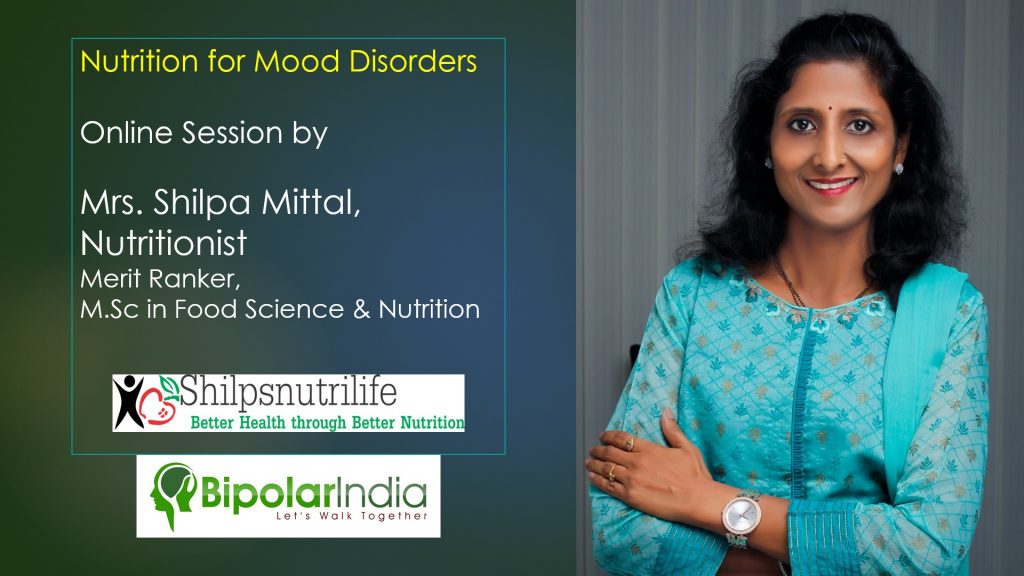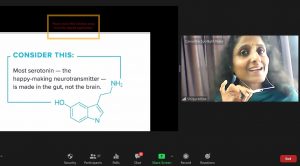
The Session began with a relevant Question asked by one of our Members~
‘We know of how Diet can help in managing weight, although it has not helped me lose weight. Can it really help in managing moods?’
Mrs Mittal’s presentation threw light on both aspects~ on weight management and on how what we eat can influence how we feel.

Some key insights from her presentation~
1) Just as what we eat affects our moods, our moods also affect our body, especially the digestive tract. Long term Stress can have undesirable consequences such Peptic Ulcers, Irritable Bowel Syndrome, Bloating, etc.
2) There is a very strong connect between the Gut and the Brain.
3) A healthy diet can help manage moods better as well as weight.
4) Crash Diets can also lead to ‘crash in moods’. Hence, getting in right amount of Nutrition and not drastically cutting down on calorie intake is important. Spreading intake of food over four to five meals in a day is essential to provide sustained energy.
5) There is a biological reason for a craving for ‘Hyper Palatable’ foods in those with Bipolar Disorder~ and these foods are usually detrimental to our health (foods that are sugary, salty, fatty, etc)
6) Sustained energy is very important. Fast release of blood glucose is followed by rapid drop in blood glucose levels, leading to tiredness and lack of energy. When Depressed, we crave for sugary foods such as Chocolate which give us an immediate ‘high or rush’ but that is very short lived.
7) One might not be able to do away with cravings for foods entirely. Hence, substituting junk with healthy foods is a good option.
8) Protein rich foods increase alertness. An egg is fine source of protein. For vegetarians too she suggested several combination of foods that are rich in protein.
9) Colourful and crunchy foods stimulate the brain to release Endorphins
10) Vitamin B Complex, Vitamin D, Calcium, Potassium, Selenium and Magnesium can help manage mood disorders (her presentation mentions sources of these Vitamins and minerals)
11) One needs to differentiate between good fats and those to avoid.
12) We often overlook that most of the Serotonin (the feel good chemical) is actually produced by the Gut and not the Brain.
13) The Healthy Swap options were quite interesting!
14) Making eating an Art~ eating mindfully, chewing food properly is important.
Here’s her Presentation~
Answers by her to Questions from our Participants~
Supplementation, whether Protein Supplement or any other, is fine if it is advised by a Physician or Nutritionist after assessing your needs. Ideally, Nutrient deficiency has to be identified with Blood Tests for deciding on taking supplements. That is because excess intake of Vitamins can be toxic.
If your body weight does not decrease despite following a proper diet and exercising, it might be due to prolonged Stress.
If you have preference for only one type of Dal, you are missing out on various Amino Acids present in different dals.
As a substitute for tea or coffee, one could try herbal tea or other such options.
